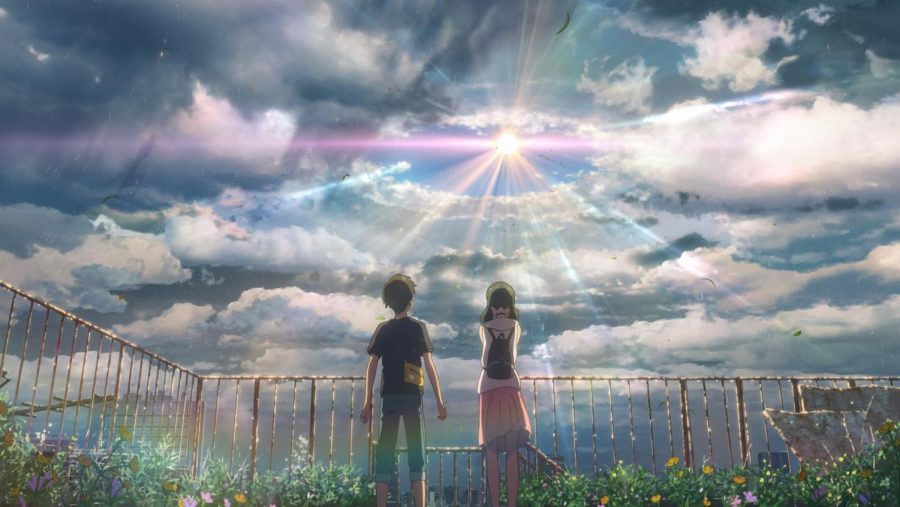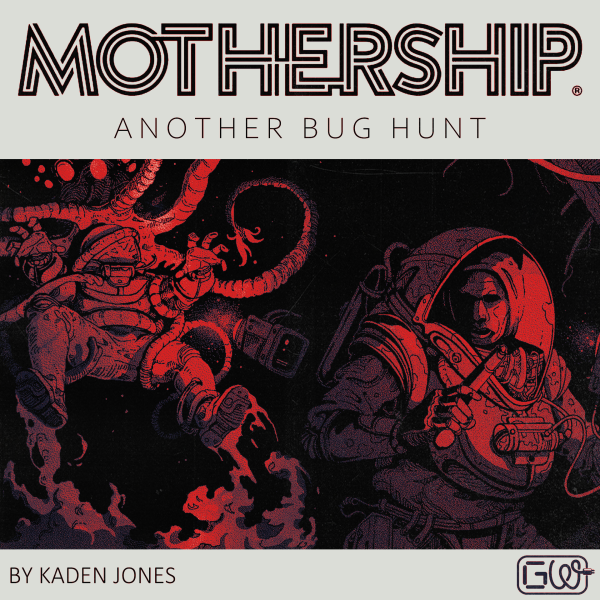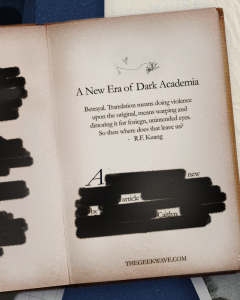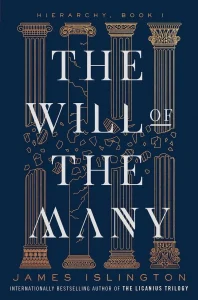Weathering With You Review
February 27, 2020
Weathering With You Conclusion
Weathering with You has finally come to the US, and one thing was clear: audiences did not know how to digest the film. This is the newest film from Makoto Shinkai, the same director as Your Name. Although Your Name is clearly romantic film, Weathering with You isn’t. Some audiences that have seen it have argued that it is a romantic film, while others argue that it is an environmental film- leaving the rest of us with a sick stomach as we try to digest what it really is. Truthfully, like the weather, the meaning of Weathering with You is composed of multiple things.
Environmental
It would be almost impossible for a movie about weather to not have some environmental themes. However, the film shows environmental themes through a couple of outlets.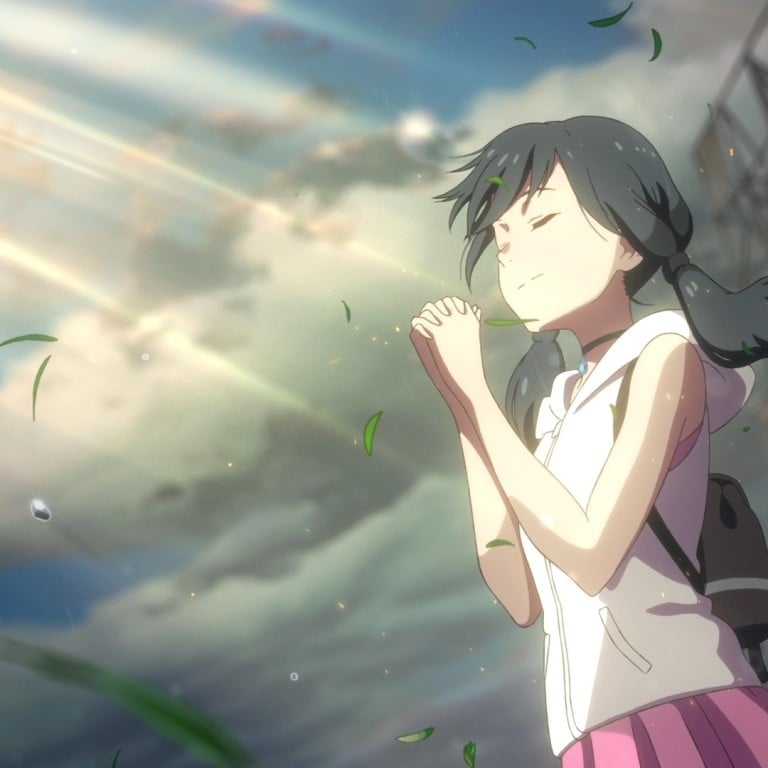
The Connection
The most clear and direct connection to nature in the film is the main premise of the film: the weather maiden. Hina’s ability to clear the weather through her prayers shows that there is an inherent connection between the Earth and humankind. So, because of this firm establishment between mankind and nature, it becomes clear that nature has a huge presence in the film, even acting as a potential antagonist. This connection is made clear by some of the interviews that Hodaka and Natsumi do, especially with the priest. This priest explains the weather maiden’s role in traditional Japanese folklore is one which requires the maiden to sacrifice herself to restore the good weather. Because this connection is so ingrained into the plot, the environmental aspects of the narrative cannot be overlooked.
Retaking the City
In one of their jobs, Hina and Hodaka meet an elderly woman. This woman is kind and invites them in for tea, which leads to a conversation about the intense rain as of late. This then lets the woman explain that Tokyo came from the ocean, so it would be okay for it to return to the water. This idea of it being ‘okay’ to retake the city constantly comes up in the film, and even becomes Hodaka’s main argument for saving Hina. So, this argument obviously plays a huge role in the film, considering that this is the course of action that actually unfolds. So, what does the water retaking Tokyo really mean in an environmental lens?
The main argument is that because nature retakes what humans have borrowed, it is inherent that humans return the earth to its rightful owner. However, this idea is very ambiguous. This is because the end of the film does not really solidify this theme, nor compliment it further. After Tokyo has returned to the water, what is left to interpret for an environmental theme is next to nothing. Instead, the film simply shows how Tokyo is in shambles, and the remaining life in Tokyo has adapted to this new, semi-aquatic life. This allows for multiple meanings to be taken away from the simple idea of returning to nature. Returning to nature can mean simple actions like cleaning up liter. This can be seen by the water having a purifying affect on Tokyo. Or, this can be interpreted as something more radical, such as asking mankind to return to a more rural state. Regardless, this theme is not coherent with the entirety of the film. Although parts of the story have environmental aspects and impacts, it is not a central enough role to the narrative to solidify itself as the main take away.
Romance
Weathering With You is definitely a romantic film centered around Hina and Hodaka. Although, the film does not begin with this being evident. Instead, it begins with Hodaka struggling as a runaway in Tokyo, and Hina struggling to make money to support herself and her brother. As the plot grows, and the two cross paths, the story alternates between a love story and a survival story. Hodaka trying to find the perfect gift for Hina to profess his love is a clear sign of romance. Then the cops hunting down the lovers returns the film to its survival sense. So, while it is a love story, with love often progressing the plot, the film is not solely a love story.
Love and its Impact on Plot
Dramatics
Love is the good feeling the audience has when Hodaka looks at Hina. Love is what the audience feels when Hina discovers her emotions for Hodaka. Love is also what makes the decisions in this film so emotional. Despite an unspoken but known love between them, Hina decides to leave Hodaka in order to restore the good weather. This is heartbreaking because it connotates the idea of loss, since Hodaka wakes up and his love is no longer by his side. This draws connections to a betrayal, like a lover leaving in the middle of the night for another. Or it can connotate the idea of death, like a widow waking up realizing the bed that was once not empty finds itself so. Weathering With You is comprised of many moments like this which are seemingly silent, but equally hearth wrenching. It is because of this composition that proves that love is a motivating factor in most plot developments.
In addition to the actual dramatics of the narrative, the name itself is romantic. Weathering with You can be broken down into two parts. ‘Weathering’, which calls out to what drew Hina and Hodaka together (Hodaka was trying to interview her). The second part is ‘with you’. This second part is calling upon a singular other. This means that the title of the film is in itself talking about a particular duo. This title is iconic with the ending scene where Hina and Hodaka are in the sky falling to earth, and clasp hands in their fall. By falling alongside the rain from the realm of the weather maiden, Hina and Hodaka are literally weathering with each other.
Impacts
Love is the lead motivating factor for a number of movements in the plot. It is what leads Hina to leave Hodaka and sacrifice herself. It is what leads Hodaka to risk everything to rescue Hina. There are so many plot movements that are influenced by love outside of Hina and Hodaka’s relationship. For example, Keisuke kicks Hodaka out in order to protect the relationship between himself and his daughter. So, because the narrative is so vastly effected by love, it is fair to say that one of the main thematic, if not the main thematic is love.
What Does it Mean?
The love between Hodaka and Hina is nothing short of weird. The lies, the runaway lifestyle, and well, the overhanging prophecy which haunts them are just the beginning. However, this can not be just coined as ‘young love’. Instead, Hodaka and Hina’s relationship isn’t about young love. It is about a unique crossing of paths to which both sides are mutually benefited. Their relationship isn’t blind, nor is it based soley in desire. Rather, it is based upon each party better complimenting the other. This can be seen in the most practical way; by Hodaka and Hina working together, both parties no longer need to worry about money. Hina helps calm Hodaka’s rash and hasty nature. Hodaka in turn helps Hina learn her own self worth and tells her to follow her own path. However, despite this idea of love being mutually beneficial, the film shows another aspect of love. Rather than this ideal form of love, the main theme behind Hina and Hodaka’s relationship is that love is selfish- and can often hurt other people, even other people that you love.
The film shows this in a number of ways. First, by Hodaka choosing to rescue Hina, his love for her is selfish because their love story dooms Tokyo- a consequence he is well aware of. This is a powerful message because it is essentially saying that their love is powerful enough to equate the end of a massive city. Another example is when Keisuke kicks out Hodaka for the love of his daughter, despite loving him like family too. Heisuke’s choice to eventually try to rescue Hodaka is selfish because it puts a strain on his daughter and his niece. It is often because of these loving relationships and ultimatums that they are put through that the plot progresses. So, the idea and theme of love in the film isn’t just young love being young. Instead, the theme is that love is often a complicated, powerful construct, and is in itself a selfish action that can often hurt others.
Urban City Decay
Crime
The last main thematic that Weathering with You really proposes is a cleansing of the grime that is human kind(don’t worry, its only some of us). From the very beginning of the plot to the near end, the city that Hodaka enters is one that is full of crime, terror, and corruption. This can be seen from his introduction to Keisuke, who rescues Hodaka and then expects payment. This shows that every kind act is transnational, and that in Tokyo, kind gestures don’t come free. Next, Hodaka is clearly struggling, and being kicked to the curb, everyone passes him by not offering him help. Instead, the club owner insults and beats him. Furthering this idea of a cruel city, Hodaka finds a firearm in a trashcan. This shows that underground crime can be found in every unsuspecting crevasse of the city. To show even more crime in the city, there is plenty of B-roll footage that explicitly states that terrorism and crime levels that continue to rise. This subtly instills these ideas of a grimy and disheartening city life. So while this shows that crime is growing, and that the average person in Tokyo is seemingly terrible and shallow, the narrative shows that the corruption of the city extends beyond average citizens.
Corruption
During the investigation of Hodaka, the detectives opt to ask the club owner for questions. Knowing his crimes, the club owner decides to run, and the police give chase. When they catch him, he admits to trying to admit an underage girl into his club. However, the cops reveal that they have no intent to arrest him on account of this, they instead want to ask him about Hodaka and his weapon possession. This shows the corruption on the government level because the club owner openly admits guilty to his crimes, but rather than arresting him on these charges, the officers joke with him. This corruption is terrifying because the crimes of the club owner are much more serious than a simple run away child. After questioning the club owner, they continue their investigation.
Cleansing
So, during the entirety of the movie, Tokyo becomes instilled as a place that is filled with grime and corruption. However, once the climax of the movie hits, and Tokyo becomes submerged, the world seems a lot cleaner and more happy. Hodaka and Hina are reunited, Keisuke and his daughter are happy. Keisuke is now in an actual office and seems well off- all it well. There is no more images of crime or corruption, the once overpopulated city has been cleaned from its grime. This works figuratively as the water seems to wipe the grime away from the city. So, although the plot is focused around Hodaka and Hina’s love story, this seems to act as a secondary theme, commenting on the affects of a large city on human nature. Or, possible commenting that human nature in itself is corrupt with an absence of nature. Regardless, the city becomes in its own, submerged way, more beautiful than it did previously.
Conclusion
Weathering with You is a complicated film, tackling a lot of different concepts, and doing a good job at it too. However, while a lot of people have a hard time digesting the plot, the film boiled down to its core narrative is a romantic film focused on the new, young love between Hodaka and Hina. Under a larger lens, the film has large environmental influences and themes, commenting on the nature of humankind as a whole and its relationship with nature. Within the genre of slice of life, Weathering with You shows that life is complicated, and often very hard. It also shows that there is a mysticism in everyday life, and that the beauty of the rain, sky, or blades of grass shouldn’t go ignored. The constant B-roll footage shows beautiful scenery, showing that this mysticism can be found everywhere, so can corruption. So, Weathering with You is complicated, but proceeds to be more than just invocitive about love, human nature, and the beauty of everyday nauture.

